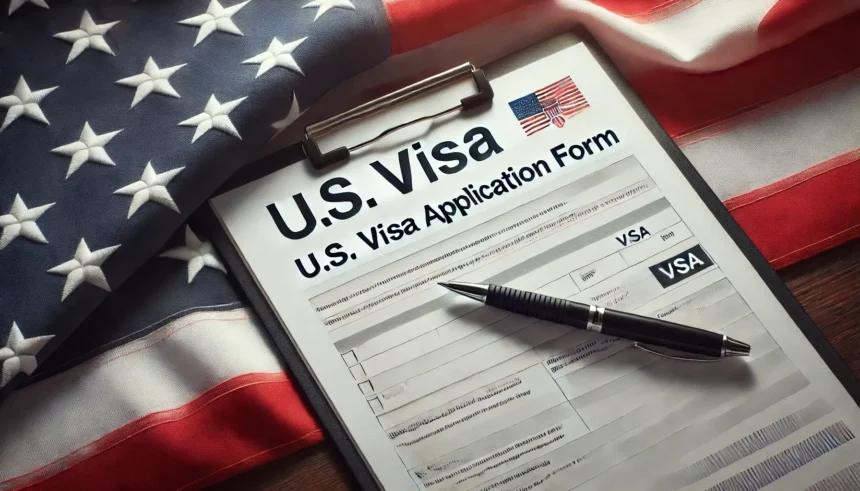President Donald Trump has announced a new immigration plan—the $5 million “Gold Card” visa, which offers wealthy foreigners a fast track to U.S. residency and citizenship. The proposal has sparked widespread debate, with supporters calling it an economic booster and critics arguing it favors the ultra-rich over skilled workers.
In this article, we will explore how this plan works, its potential impact, and why it has become a controversial topic.
What Is the Gold Card Visa?
The Gold Card visa is a premium alternative to the traditional green card, designed for high-net-worth individuals willing to pay a one-time $5 million fee. Trump described it as an upgrade from the current EB-5 Immigrant Investor Program, which requires foreign investors to put at least $1.05 million (or $800,000 in targeted areas) into U.S. projects that create jobs.
Unlike the EB-5 visa, which requires job creation, the Gold Card would allow direct residency without any investment requirements, making it a simpler and faster path to U.S. citizenship.
Why Is This Plan Controversial?
Trump’s proposal has stirred strong reactions on both sides.
Arguments in Favor of the Gold Card Visa
- Boosts the Economy – By attracting billionaires and business leaders, the plan could generate significant revenue for the U.S. government.
- Simplifies the Process – Unlike the EB-5 program, this visa would allow individuals to directly purchase residency without waiting for investment projects to be approved.
- Keeps Wealthy Talent in the U.S. – Investors and entrepreneurs who contribute to the economy could have a clear and quick pathway to citizenship.
Criticism and Concerns
- Selling Citizenship – Critics argue that U.S. residency should not be available for purchase like a luxury item.
- Favors the Ultra-Rich – The plan does not consider skilled workers, scientists, or professionals who contribute to innovation and development but do not have millions to spend.
- Potential for Misuse – There are concerns that foreign billionaires, including Russian oligarchs, could use this program to gain U.S. citizenship for personal or political benefits. When asked whether Russian oligarchs would qualify, Trump responded: “Yeah, possibly. I know some Russian oligarchs that are very nice people.”
How Does the Gold Card Compare to the EB-5 Visa?
| Feature | Gold Card Visa | EB-5 Visa |
|---|---|---|
| Minimum Investment | $5 million | $1.05 million ($800,000 in targeted areas) |
| Job Creation Requirement | No | Yes (at least 10 U.S. jobs) |
| Path to Citizenship | Yes | Yes |
| Processing Time | Expected to be faster | Can take years |
| Availability | Set to launch in two weeks | Ongoing |
The EB-5 visa has been a source of controversy in the past, with critics calling for reforms due to fraud and misuse. Some lawmakers have argued that the program benefits wealthy investors more than American workers. Trump’s Gold Card visa eliminates the job creation requirement but raises new ethical and security concerns.
Potential Impact on U.S. Immigration
Will It Change How the U.S. Attracts Foreign Talent?
If implemented, the Gold Card visa could change U.S. immigration policy by shifting the focus away from merit-based entry and toward wealth-based entry. Instead of prioritizing skilled professionals, scientists, or tech workers, this plan would allow anyone with $5 million to gain residency.
This could also affect the current visa system, including the H-1B program, which is designed for high-skilled workers in fields like technology, engineering, and medicine. Some argue that instead of attracting innovators and researchers, the Gold Card visa opens doors only for those who can afford it.
Could It Lead to More Housing and Economic Disparities?
Some economists warn that allowing wealthy foreigners to buy residency could drive up real estate prices, especially in major U.S. cities like New York, Los Angeles, and Miami. Similar programs in Canada, Australia, and the UK have faced criticism for making housing less affordable for local residents.
When Will the Gold Card Visa Be Available?
According to Trump, the Gold Card visa program will launch in about two weeks, with expectations of selling millions of these premium visas. However, given the legal and political hurdles, it remains to be seen whether the plan will move forward as proposed.
Opposition from lawmakers and the public could delay or block the program, especially if concerns over national security and fairness continue to grow.
For more insights on other trending news, click here!
Final Thoughts: Will This Reshape U.S. Immigration?
The $5 million Gold Card visa is a groundbreaking yet controversial policy that could redefine U.S. immigration. While it promises economic benefits, it also raises big ethical and security concerns.
Some see it as a smart strategy to attract billionaires, while others argue it undermines the principles of a fair immigration system.
What do you think? Should the U.S. sell residency for $5 million? Share your thoughts in the comments!
Stay Updated on the Latest Immigration News!
Subscribe for more updates on Trump’s policies and their impact on the U.S. economy.
Disclaimer: The information provided in this article is for informational and educational purposes only. TN HEADLINES24 makes no representations or warranties about the accuracy, completeness, or reliability of the content. While we strive to ensure up-to-date and accurate reporting, policies, laws, and programs may change over time. TN HEADLINES24 is not responsible for any decisions made based on this information. Readers are encouraged to verify details from official government sources or consult with legal and immigration experts before making any financial or legal commitments.
This article reflects general viewpoints and does not constitute professional advice. TN HEADLINES24 does not endorse or oppose any political figure, policy, or program. Any opinions expressed in this article belong to the sources cited and do not necessarily reflect the views of TN HEADLINES24.
For official immigration details, please visit the United States Citizenship and Immigration Services (USCIS) website or consult a licensed professional.








